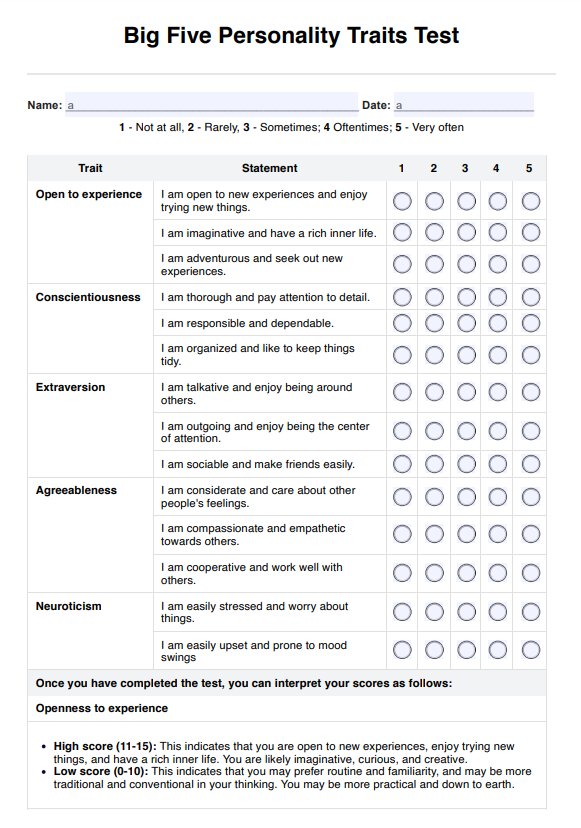The Big 5 Personality assessment is a reliable psychological model that measures five dimensions of personality: Openness to Experience, Conscientiousness, Extraversion, Agreeableness, and Neuroticism. The Big 5 model provides a comprehensive and empirically validated framework for understanding an individual's unique personality profile across these five key dimensions.

Big 5 Personality Test
Click here to learn more about the Big Five Personality Test and how it can support your clients on their personal development and mental health journeys.
Use Template
Big 5 Personality Test Template
Commonly asked questions
The Big 5 model has been used in various contexts, including career counseling, personal development, team-building, and clinical psychology.
The big five personality traits tend to be relatively stable across the lifespan, with the greatest changes occurring in young adulthood and old age.
EHR and practice management software
Get started for free
*No credit card required
Free
$0/usd
Unlimited clients
Telehealth
1GB of storage
Client portal text
Automated billing and online payments











